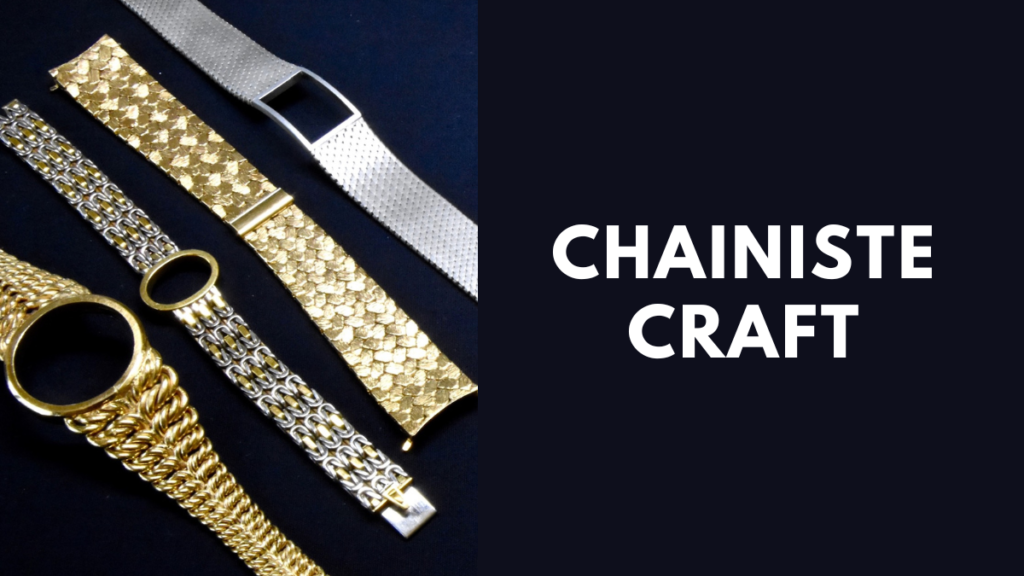Chainiste Craft is a shining example of the lasting appeal of handmade items in a culture that values craftsmanship. This essay digs deeply into the complexities of Chainiste Craf’t, examining its history, methods, and the stunning results it yields.
The Origins of Chainiste Craft
· Ancient Beginnings
The origin of Chainiste Craf’t can be traced back to the 4th century BC, when the first examples of chainmail were created. The practice of making protective armor by joining together small metal rings was a mark of both practicality and craftsmanship.
· Evolution Over Centuries
The development of chainmail was a product of time. Its original practical use was eclipsed by its subsequent transformation into a creative medium. Chainmail was once exclusively used for making armor, but skilled craftspeople took it in a new direction, turning it into elaborate jewelry and other forms of wearable art.
The Technique BehindChainiste Craft
· Precision and Patience
It takes a lot of effort and precision to make Chainiste Craf’t. Craftspeople create stunning patterns by intricately weaving together small metal rings. Their unwavering pursuit of excellence is reflected in every finished product.
· Materials of Choice
Metals like steel and copper are common, but artists practicing Chainiste Craf’t also use less typical materials such anodized aluminum in bright colors. Because of this variety, the finished products can feature a wide range of hues and textures.
The Versatility of Chainiste Craft
· Wearable Art
The ability to adapt to different situations is one of Chainiste Craft’s most appealing features. Beautiful necklaces, bracelets, and earrings are crafted by artisans, who transform ordinary jewelry into one-of-a-kind creations.
· Home Decor
There is a growing trend of using Chainiste Craf’t in interior design. Decorate your home with style using chainmail drapes, dividers, and wall hangings.
· The Allure of Handmade Artistry
Chainiste Craf’t represents the persistent popularity of handcrafted goods in a market saturated with factory-made items. Each item is more than a finished good; it is a reflection of the artist’s passion for their work.
Why Choose Chainiste Craft?
· Uniqueness
Chainiste Craft is the choice of those who value individuality. You may rest assured that you have a one-of-a-kind item because no two are alike.
· Quality
Chainiste Craf’t products are of the highest quality because of the meticulous care with which they are made. They are sturdy enough to last for decades.
· Supporting Artisans
When you buy from Chainiste Craft, you’re directly supporting skilled craftspeople. You are contributing to the upkeep of a centuries-old custom.
Conclusion
Chainiste Craf’t is a celebration of human ingenuity and ability, not just a kind of ornamentation. Chainiste Craf’t is a reminder of the significance of the handcrafted in a society that is increasingly moving in the direction of automation and standardization.
Read More : rubblemagazine.com
FAQs
Where can I purchase Chainiste Craft items?
You can find Chainiste Craft items on various artisan websites and craft fairs. Each piece is typically made to order.
Is Chainiste Craft expensive?
The price of Chainiste Craft items varies depending on factors like materials used and intricacy of design. However, they are generally considered an investment in quality craftsmanship.
Can I request custom Chainiste Craft pieces?
Many artisans are open to custom orders. You can discuss your ideas and preferences with them to create a unique piece tailored to your vision.
How can I learn the art of Chainiste Craft?
If you’re interested in trying your hand at Chainiste Craf’t there are online tutorials and workshops available. However, mastering this art form may take time and practice.
Is Chainiste Craft sustainable?
Chainiste Craf’t is often considered sustainable because it emphasizes quality over quantity. Handcrafted items are less likely to end up in landfills, promoting a more eco-friendly approach to consumption.







